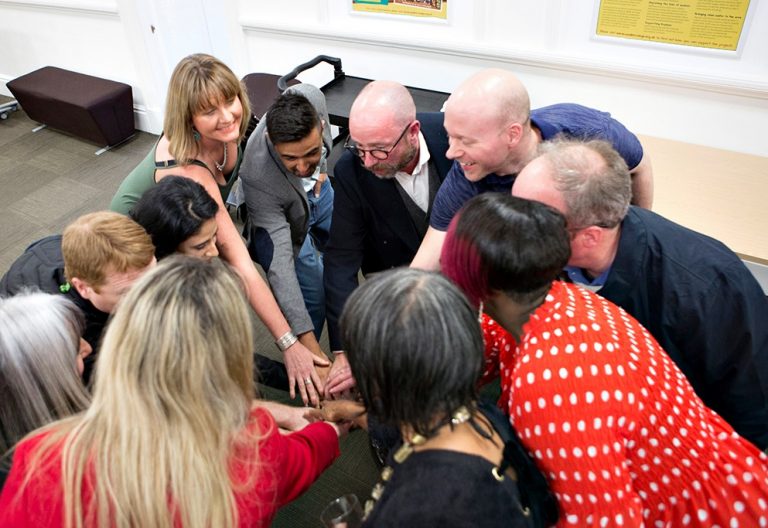Decoding the Coaching Quandary: Unraveling if Coaching is Your Calling
In the vibrant realm of personal development and professional growth, the concept of coaching has emerged as a beacon of hope for individuals seeking support, transformation, and the realisation of their full potential. However, for those contemplating a career in coaching, the question often arises: is coaching the right path for me?
Navigating the waters of the coaching industry can be a daunting task, filled with uncertainties and a plethora of options. To help you discern if coaching is your calling, let’s delve into the defining traits of a successful coach and explore the transformative journey that awaits you.
1. The Coaching Calling: Unmasking the Traits of a Guiding Light
The world of coaching demands a unique blend of personal qualities, professional skills, and a deep-rooted passion for empowering others. Before embarking on this fulfilling path, examine whether these traits resonate with your inner compass:
A Natural Empath: Coaches possess an innate ability to step into the shoes of their clients, understanding their emotions, perspectives, and challenges with compassion and empathy. This empathetic connection is the foundation of trust and rapport, allowing clients to feel seen, heard, and supported.
An Active Listener: Coaching is not about lecturing or dictating solutions; it’s about actively listening to your clients’ concerns, aspirations, and underlying motivations. By listening without judgment, coaches create a safe space for clients to explore their thoughts, feelings, and experiences freely.
A Strong Communicator: Effective communication is the lifeblood of coaching. Coaches must articulate their thoughts clearly, succinctly, and with a touch of inspiration, fostering understanding and motivating clients to take action.
A Catalyst for Change: Coaches serve as catalysts for personal growth and transformation. They possess the ability to challenge clients’ limiting beliefs, expand their perspectives, and instill in them the confidence to make positive changes in their lives. We talk about limiting beliefs in our previous blog.
2. The Coaching Journey: A Path of Continuous Learning and Growth
The path to becoming a certified coach is a transformative journey filled with learning, growth, and self-discovery. Here’s a step-by-step guide to help you navigate this exciting process:
Seek Guidance: Explore the diverse coaching disciplines and find a niche that aligns with your passions and expertise. Consult experienced coaches, attend workshops, and research reputable coaching programs to gain insights into the field. Ideally, you want a formula for growing your coaching business.
Choose Your Path: Select a coaching certification program that aligns with your learning style, budget, and career goals. Consider programs that offer a balance of theoretical knowledge, practical skills development, and mentorship opportunities.
Embrace the Learning Curve: Commit to the learning process, actively participate in discussions, and engage with your fellow trainees. Embrace feedback, challenge yourself intellectually, and continuously refine your coaching skills.
Gain Practical Experience: Seek opportunities to gain practical coaching experience, whether through volunteer work, internships, or shadowing experienced coaches. Apply your theoretical knowledge in real-life coaching scenarios, refining your skills and building confidence.
3. The Coaching Impact: Empowering Others to Reach Their Full Potential
The true value of coaching lies in its transformative impact on individuals seeking personal and professional growth. Coaches play a pivotal role in empowering their clients to:
Enhance Self-Awareness: Through guided reflection and insightful questioning, coaches help clients gain a deeper understanding of their values, motivations, strengths, and areas for improvement. This self-awareness empowers clients to make informed decisions and pursue fulfilling paths.
Set Goals and Achieve Them: Coaches provide a supportive framework for clients to set meaningful goals, break them down into actionable steps, and develop strategies to overcome obstacles. This goal-setting process fosters accountability and propels clients towards their aspirations.
Overcome Challenges and Build Resilience: Coaches guide clients through personal and professional challenges, helping them develop resilience, adopt effective coping mechanisms, and maintain a positive outlook. This support empowers clients to navigate life’s inevitable hurdles.
Unlock Potential and Achieve Breakthroughs: Coaches challenge clients’ limiting beliefs, encourage them to step outside their comfort zones, and inspire them to reach their full potential. This empowering approach can lead to breakthroughs and the realisation of long-held dreams.
Conclusion: Embarking on the Coaching Adventure
The decision to pursue a career in coaching is not merely about choosing a profession; it’s about embracing a calling. It’s about committing to a journey of continuous learning, personal growth, and the profound satisfaction of empowering others to achieve their full potential. If you possess the innate qualities of empathy, active listening, effective communication, and a passion for guiding others, then the world of coaching awaits, brimming with opportunities to make a lasting impact on the lives of others.
If you’re ready to overcome your limiting beliefs and become a successful coach, I encourage you to attend one of our 1-Day Coaching Diplomas to start your coaching journey. It’ll help you to develop a plan to achieve your goals and build a successful coaching business. You can also find our beginners guide to becoming a coach here.




Leave a Reply
You must be logged in to post a comment.